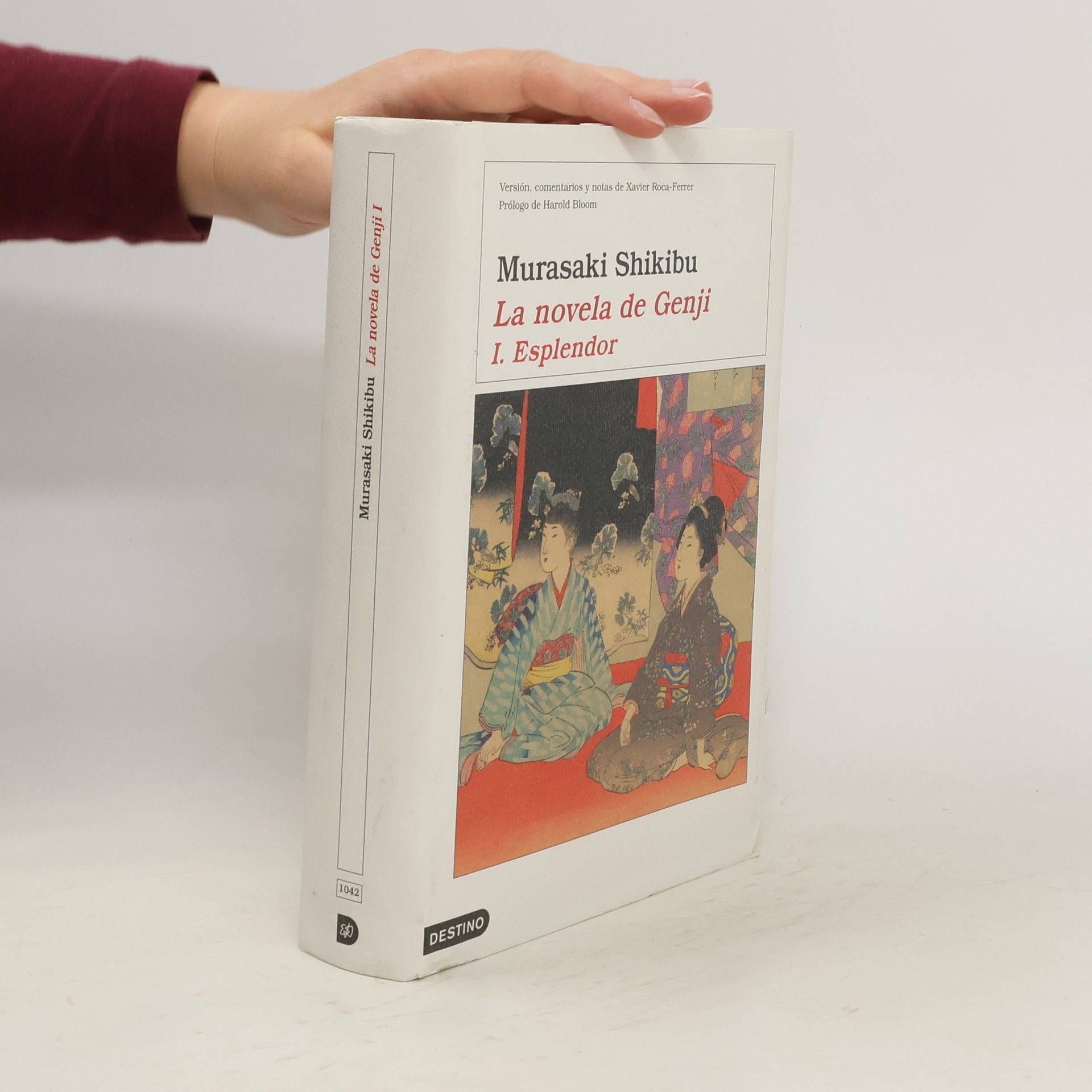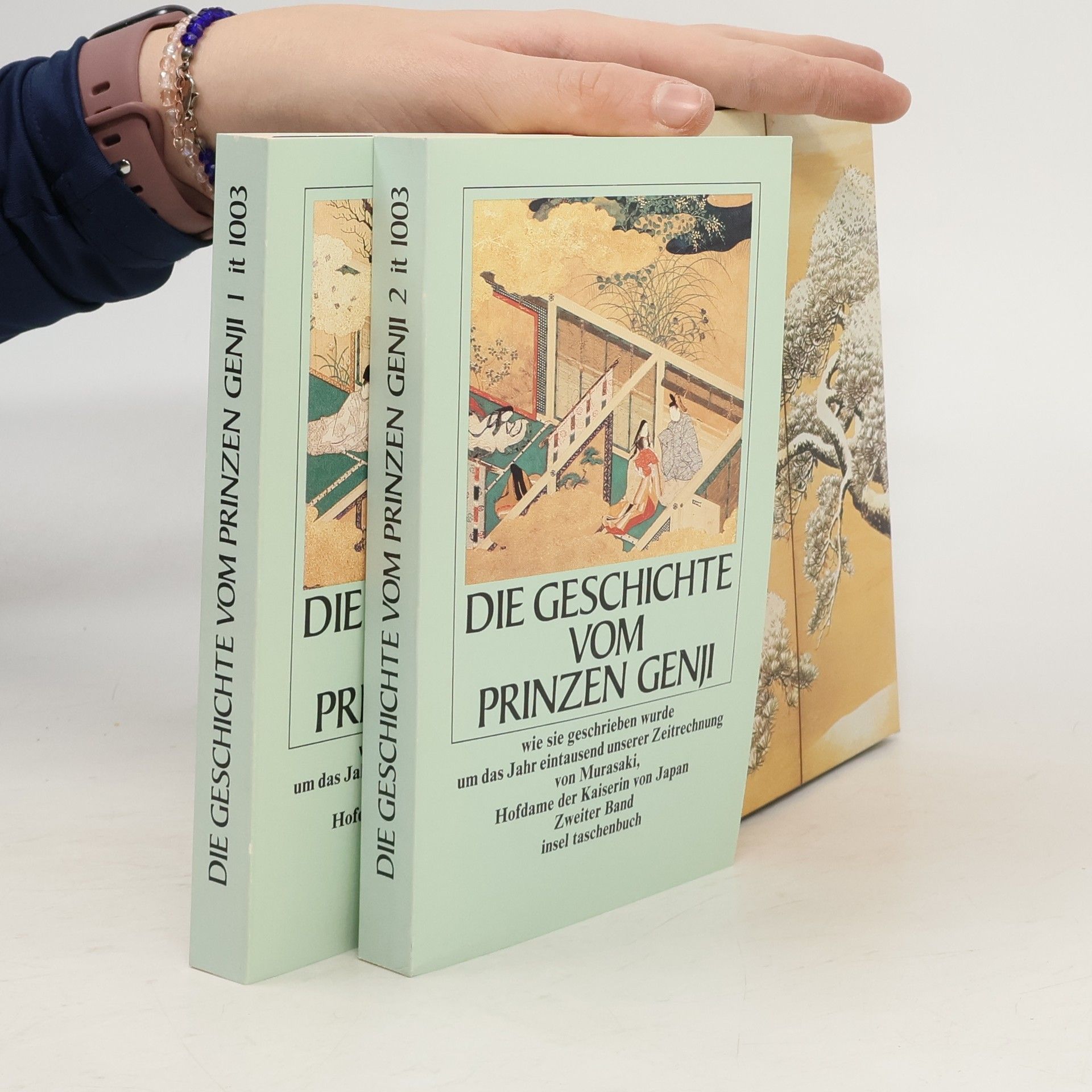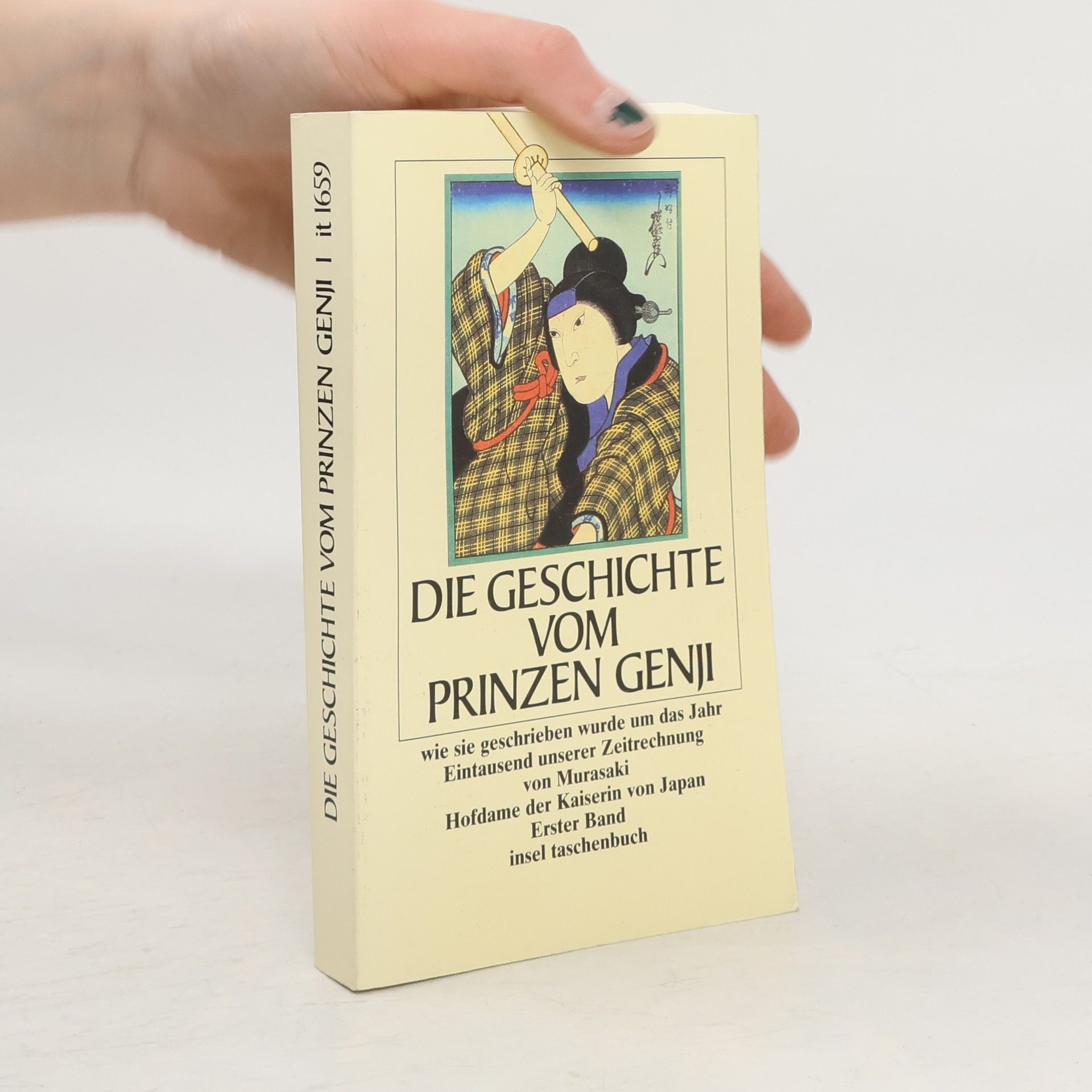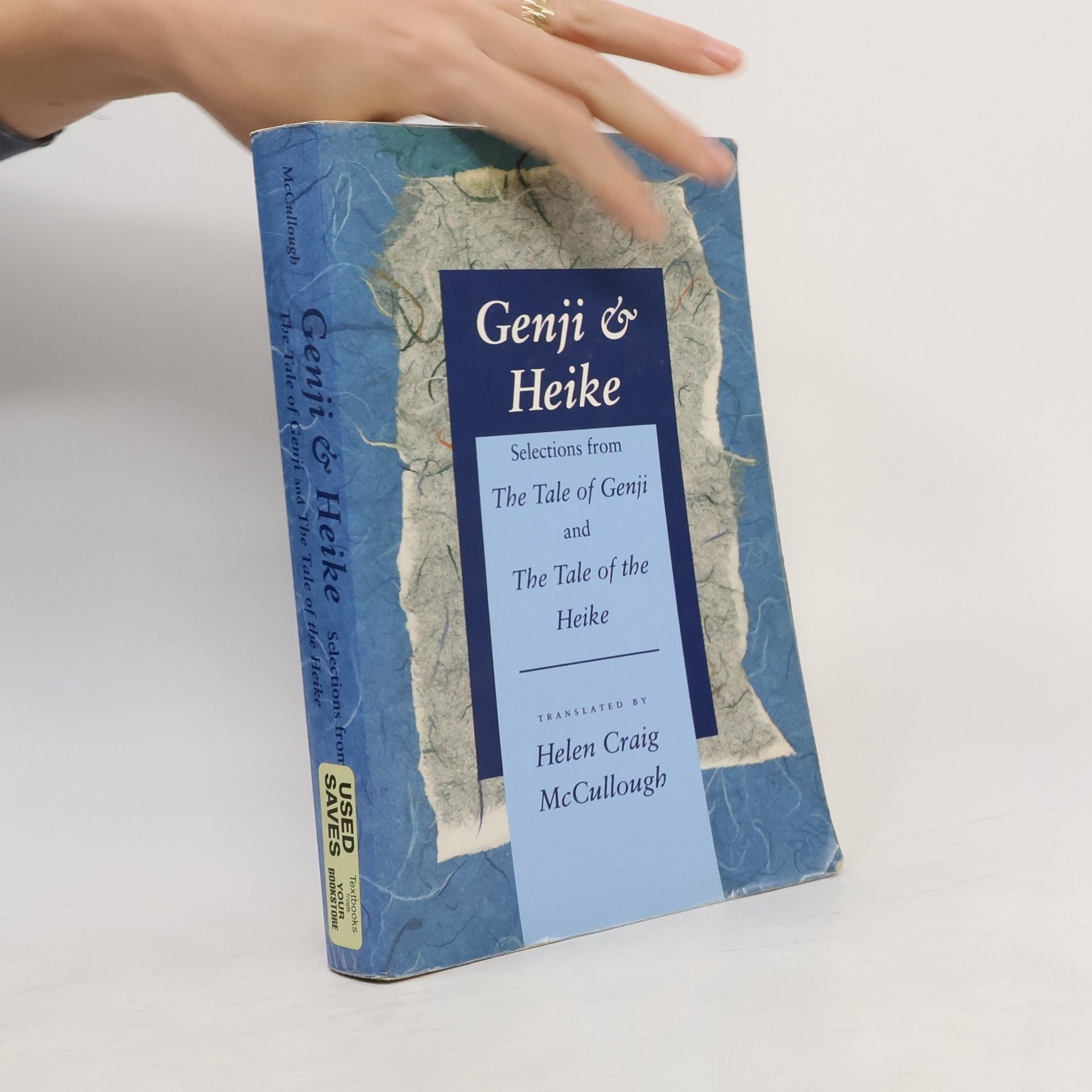The Tale of Genji Monogatari? is a classic work of Japanese literature attributed to the Japanese noblewoman Murasaki Shikibu in the early eleventh century, around the peak of the Heian Period. It is sometimes called the world's first novel, the first modern novel.
Die Geschichte vom Prinzen Genji Reihe
Tauchen Sie ein in die Welt des japanischen Adels, wo Romantik, Intrigen und Hofleben miteinander verknüpft sind. Diese epische Erzählung folgt der Lebensreise eines legendären Prinzen und seinen zahllosen romantischen Verstrickungen. Sie erforscht die Komplexität menschlicher Emotionen und das Streben nach Schönheit in einer vergänglichen Welt. Eine lange, aber fesselnde Saga über Liebe, Verlust und die Suche nach Sinn.






Die Geschichte vom Prinzen Genji
Altjapanischer Liebesroman - Vollständige Ausgabe aus dem Original
Written centuries before the time of Shakespeare and even Chaucer, The Tale of Genji marks the birth of the novel - and after more than a millenium, this seminal work continues to enchant readers throughout the world. Lady Murasaki Shikibu and her tale's hero, Prince Genji, have had an unmatched influence on Japanese culture. Prince Genji manifests what was to become an image of the ideal Heian-era courtier; gentle and passionate, Genji is also a master poet, dancer, musician and painter. The Tale of Genji follows Prince Genji through his many loves, and varied passions. This book has influenced not only generations of courtiers and samurai of the distant past, but artists and painters even in modern times - episodes in the tale have been incorporated into the design of kimonos and handicrafts, and the four-line poems called waka which dance throughout this work have earned it a place as a classic text in the study of poetry.Lady Murasaki Shikibu, born in the year 978, was a member of the famed Fujiwara clan - one of the most influential families of the Heian period. Her literary ability quickly won her place in the entourage of the Empress Akiko, whose court valued the rare woman who was a master of writing. After the death of her husband, Murasaki Shikibu immersed herself in Buddhism, and the religion's influences permeate her writing.
Die Geschichte vom Prinzen Genji, 2 Bde.
- 583 Seiten
- 21 Lesestunden
Das Genji-Monogatari ist das älteste und bedeutendste Werk der japanischen Frauenromane. Zugleich gilt es als ältester Roman der Weltliteratur überhaupt. Es entstand zwischen 1004 und 1011, als seine Verfasserin als Hofdame in den Diensten der Kaiserin Akiko stand. Als Meisterin einer leicht hinfließenden Prosa versteht sie es, die Bildhaftigkeit der Sprache zu nutzen, um die Liebeserlebnisse des Prinzen Genji zu beschreiben. Wie in einem Nô-Schauspiel treten die Personen der Handlung klar akzentuiert in ihren Wesenszügen vor dem Hintergrund einer sich immer wieder wandelnden Natur auf.
Nachw. Michael, Freidrich. 2 Bände. cpl. in Kass.
Die Geschichte vom Prinzen Genji. Altjapanischer Liebesroman
- 1928 Seiten
- 68 Lesestunden
„Die Geschichte vom Prinzen Genji“ ist ein zeitloses Meisterwerk, das die Liebesabenteuer des Prinzen und das Leben am kaiserlichen Hof der Heian-Zeit schildert. Mit psychologischer Tiefe und sprachlicher Eleganz erzählt es von Genjis Einfühlsamkeit und seinem Umgang mit Machtintrigen. Der Manesse Verlag bringt die vollständige Übersetzung von Oscar Benl in prachtvoller Ausstattung heraus.
La novela de Genji I.
- 930 Seiten
- 33 Lesestunden
Escrita por una mujer del refinado Japón imperial de la segunda mitad del siglo X, la novela es una obra magna fascinante, a la altura de Quijote, Guerra y paz o Hamlet. La historia de Genji se esparce por más de medio siglo, con infinidad de personajes y de aventuras, muchas galantes, en que el protagonista, hijo del emperador a quien han alejado del poder desde su infancia, pugna por recuperar sus derechos. Una vida de éxitos y fracasos, de maquinaciones de poder y de erotismo que llenan el clásico más notable de cuantos quedaban por traducir a nuestra lengua.
Este segundo volumen de La historia de Genji comprende los ultimos trece capitulos (42-54) de la obra. La narracion del ultimo tercio de la novela se reanuda tras un lapso de ocho años desde la muerte de Genji. Volvemos a encontrarnos con Karou, hijo tardio de Genji, que segun dicen desprende un olor maravilloso desde su nacimiento, y tambien a Niou, el nieto de Genji. Los dos jovenes son grandes amigos, pero tambien seran duros rivales en el amor; primero, con las hijas de un principe viudo que vive retirado en Uji junto a sus dos hijas; y luego, con la bella Ukifune, que se encontrara atrapada entre dos pretendientes. La sucesion de amores imposibles y la desdicha que estos acarrean, constituiran el melancolico telon de fondo con el que concluye esta obra cumbre de la literatura japonesa. Nada se ha escrito mejor en ninguna literatura, dijo de ella Marguerite Yourcenar. Es comparable a los grandes clasicos occidentales como Cervantes o Balzac, dijo Octavio Paz. No es que sea mejor o mas memorable o intensa que la obra de Cervantes, pero si mas compleja, observo Borges. Pero esta obra no necesita elogios previos, necesita solamente que el lector llegue a ella y empiece a leerla. Algo inasible le empujara a seguir. Ese algo es su movimiento.
The Tale of Genji (Abridged)
- 138 Seiten
- 5 Lesestunden
"The Tale of Genji" by Lady Muraski is one of the world's most influential novels. As the first psychological novel, "The Tale of Genji" delves into the motivations and thoughts of the main characters, which had never been done in previous novels. The famous Japanese story is about Genji, the son of an emperor. When his mother died, Genji's father married another woman who greatly resembled Genji's mother. However, Genji fell in love with his new stepmother, causing problems between him and his own wife. He pursues a number of affairs, and is eventually exiled from the Capitol to a small, rural town. While Lady Murasaki did not base "The Tale of Genji" on a true story, she was inspired by a Minister in the royal court. She wrote the story in small installments for the ladies of the court, which might explain why the story was never "finished;" Lady Murasaki intended to keep the stories going as long as she possibly could. She also created some of the most memorable female characters in literature. As such, "The Tale of Genji" is widely considered to be one of the greatest works in the Japanese literature canon, as well as one of the most influential works of storytelling. Contained in this volume is the abridged translation of Suematsu Kencho.
The Tale of Genji and The Tale of the Heike are two seminal works of classical Japanese prose. This abridged edition offers a one-volume selection suitable for survey courses in classical Japanese literature or world literature, as well as for general readers intimidated by the complete texts. The translator has chosen representative excerpts to create coherent and aesthetically pleasing narratives. Often regarded as the world's first novel, The Tale of Genji, by Murasaki Shikibu, poetically captures the aristocratic life of eleventh-century Japan, a time of rich cultural development. This translation emphasizes key events in Genji's life, particularly his profound relationship with Murasaki, and includes significant portions from 10 of the 41 chapters, notably the "Broom Tree" chapter, which encapsulates the book's central themes. Conversely, The Tale of the Heike portrays the late twelfth-century political machinations and battles that led to the decline of the Kyoto court and the rise of the Minamoto (Genji) clan's military government. Its theme of the impermanence of worldly affairs resonates with Genji, yet its oral composition and vigorous language starkly contrast with Genji's elegant tone. The selections from Heike comprise about 40 percent of the work and are drawn from a celebrated complete edition. To aid readers, the translator has included introductions, headnote summaries, and supplementary materials, along wi
